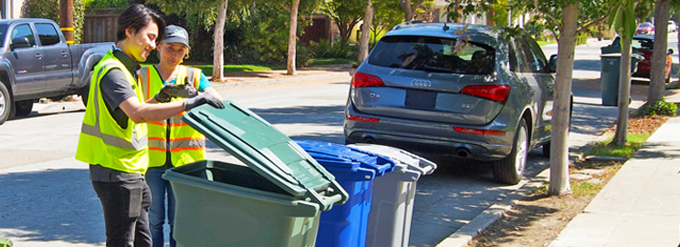Lid Flip FAQs
- Why will ACI be looking in your trash, recycling, and compost containers?
Answer: It’s the law! With the passage of Senate Bill (SB 1383), the state established rules to ensure everyone in California is recycling and composting properly. Cities and haulers like ACI are responsible for compliance with new law.
SB 1383 is part of California’s strategy to address climate change by reducing the amount of methane (a climate super-pollutant) that is generated from food waste in landfills.
The annual container reviews ACI will be conducting are required by state law to ensure people are properly sorting their trash, recyclables, and organic materials including food scraps and plant materials to reduce contamination.
For more information on the State’s effort to combat climate change through composting, visit https://www.stopwaste.org/rules.
- What exactly will ACI be doing during the container reviews?
ACI personnel will do a visual survey of container contents (aka “lid flips”) from a random sampling of customers to document the estimated contamination levels. The ACI team will be checking to see if unacceptable items are found in the trash, recycling, and organics carts and bins.
If prohibited materials are found, ACI will provide the customer with a “Courtesy Notice” on the cart or bin with specifics on the issue. This is meant to help educate residents about proper sorting. Only for significant issues of contamination (i.e. a container is too contaminated to pick up for recycling or composting), will a “Non-Collection Notice” be left. In those rare instances, a contamination fee will be levied unless the customer removes the contamination.
- What happens if I receive a notice on my container(s)?
Follow the instructions on the notice, which may include contacting ACI.
- What happens if I am charged for contamination I did not cause?
Customers will only be charged a contamination fee for repeated issues of contamination or in the case of egregious contamination. ACI will work with customers on a case-by-case basis following the initial notice of contamination. For customers with shared services, it will be the responsibility of the account holder to pay the fee and ensure residents understand proper sorting and what goes where. See complete list here.
- How will ACI address contamination issues after the container reviews?
Throughout the year, ACI will use the Courtesy Notices and Non-Collection Notices to communicate with customers about contamination issues.

